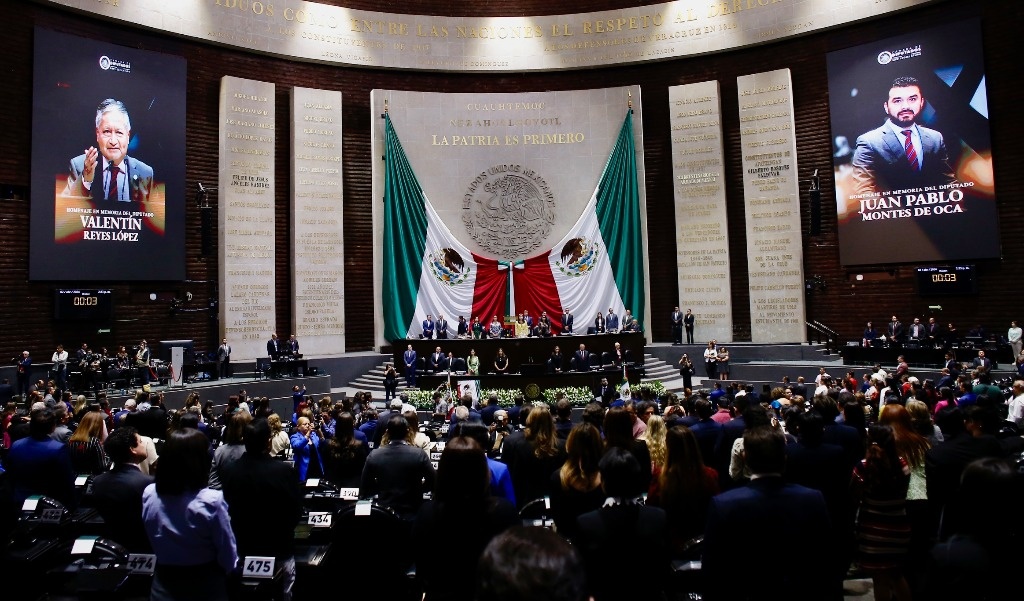Washington y Nueva York. World leaders arriving in the US capital today for the spring meetings of multilateral financial institutions face forecasts of new generations out of work, growing economic inequality and threats that artificial intelligence (AI) could worsen these problems, which adds to the criticism of these organizations.
Jobs are the easiest way to put a nail in the coffin of poverty
Ajaypal Singh Banga, president of the World Bank, said at a briefing on the meetings last week. In the next decade, there will be one billion people reaching employable age in the global south. That is the demographic bonus
. However, he acknowledged that, For now, the forecast (of new jobs) for these same countries is 325 million
.
The director of the International Monetary Fund (IMF), Kristalina Georgieva, offered more worrying figures about the immediate future when presenting the results of an investigation by her institution on the impact of artificial intelligence: Over the next few years, 40 percent of jobs in the world will be affected by AI; some will be improved, many will disappear
. He noted that in advanced economies, 60 percent of jobs will be impacted, as well as 26 percent in lower-income countries. Although the effect will be smaller in less developed countries, it could also mean that be left behind
.
The leaders of these multilateral financial institutions spent most of their pre-meeting presentations talking about the progress they have made in recent years and their next steps. The IMF, Georgieva commented, has injected one trillion dollars in liquidity and reserves: 650 billion in funds known as special drawing rights and 360 billion in loans in 2021.
The World Bank, Banga noted, has authorized $40 billion more in loans over the next 10 years, and is accelerating credits and investments in policies to address areas such as job creation, energy, inequality reduction, infrastructure and health, among others.
Growth warm
and popular discontent
The director of the IMF warned that her economists project that the next decade will be warm growth
y popular discontent
unless debt burdens are reduced and productivity is increased. The WB’s Banga added that a significant number of low-income countries They are spending more on debt service than on health and education
.
In a report issued this Monday, the WB says that, according to a survey in the 75 poorest countries with which it works, they found that The world’s most vulnerable half are facing a growing income gap against richer economies for the first time this century.
.
In what the bank describes as historical setback
the research indicates that the extreme poverty rate in these countries is eight times that of the rest of the world and that some countries are poorer, on average, than they were before the covid-19 pandemic.
However, outside experts predict that the problem could be even bigger than the international financial organization recognizes. Income inequality is high or increasing in 60 percent (64 of 106 countries) of low- and middle-income countries that receive funds or loans from the IMF and the World Bank
says Oxfam International in an analysis issued this Monday.
While the anti-poverty organization welcomes the decision the World Bank made last year to set goals for reducing inequality for the first time in its eight-decade history, they noted that the problem often has to do with the recommendations they make. these same institutions to the countries.
This hypocrisy has to end
“The IMF and World Bank say tackling inequality is a priority, but they equally support policies that increase the divide between the rich and everyone else. Ordinary people are struggling more and more every day to overcome cuts to public funding for health, education and transport. This hypocrisy… has to end,” said Kate Donald, head of Oxfam International’s Washington office.
Efforts by these multilateral institutions to address climate change are also moving slowly. Last year, rich countries that have generated most of the pollution over a century agreed to create a loss and damage fund to help poor countries deal with the pollution crisis.
The first meeting on this fund, sponsored by the World Bank, is scheduled to take place in Dubai at the end of April.
However, the amounts of financing offered by these institutions and the rich countries of the developed world are not even close to what is required. The need is trillions (dollars) and what we have are millions, not even billions
said Ritu Bharadwaj, finance and climate researcher at the International Institute for Environment and Development in Great Britain, in an interview with Climate Home News.
The same medicine for increasingly serious illnesses
There is no indication that these meetings are considering a substantial increase in funding to address the ravages caused by climate change or growing economic inequality.
Rather, IMF and WB leaders insist that their role is to organize financing and recommend economic policies that attract the private sector, which, according to all, needs to have an increasing participation.
Relying on private capital as a savior when addressing developing world problems (problems often created by the developed world) has been common practice at these meetings over the past few decades.
The record of private initiative in the developing world does not show, so far, that its interest is in eliminating poverty, inequality or addressing the climate crisis. Data in a new report by an independent Group of 20 think tank issued last Friday raises no hopes for private equity as a solution.
The private sector took a couple hundred billion dollars out of developing countries last year
, explained Masood Ahmed, president of the Center for Global Development. The report concludes that the pace of reforms promoted by the multilateral development camp remains inadequate to have a palpable impact on sustainable development
.
#BMIMF #fear #rise #unemployment #inequality
– 2024-04-16 23:48:59


